
I hope you enjoy this blog. Any open-mic news is particularly welcome, and please add any poetry links you feel are worthwhile with your comments (and any of your original poetry).
This post includes interviews of guest poets by Jennifer Matthews. So far these include the following poets starting with the most recent (and more on the way!):
Máighréad Medbh
Anamaría Crowe Serrano
James Harpur
Rick Mullen
Lothar Luken
Robyn Rowland
Dairena Ní Chinnéide
Knute Skinner
Niall Herriott
Dominic Taylor
Seán Callahan
Miceál Kearney
Trish Casey
Gearoid Mac Lochlainn
Thanks Jen for all the quality work! (which is here)
Comments: Poetry and Miscellaneous. Please feel free to contribute.
21 Responses to “Welcome to the Ó Bhéal blog”
RSS feed for comments on this post. TrackBack URI
You must be logged in to post a comment.
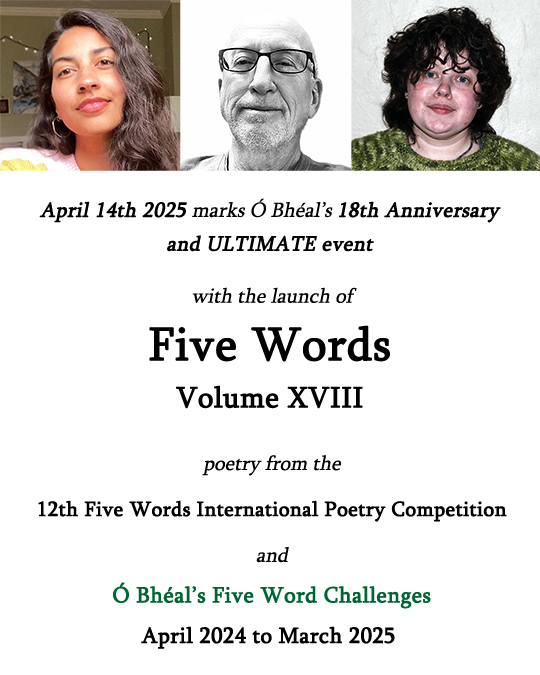
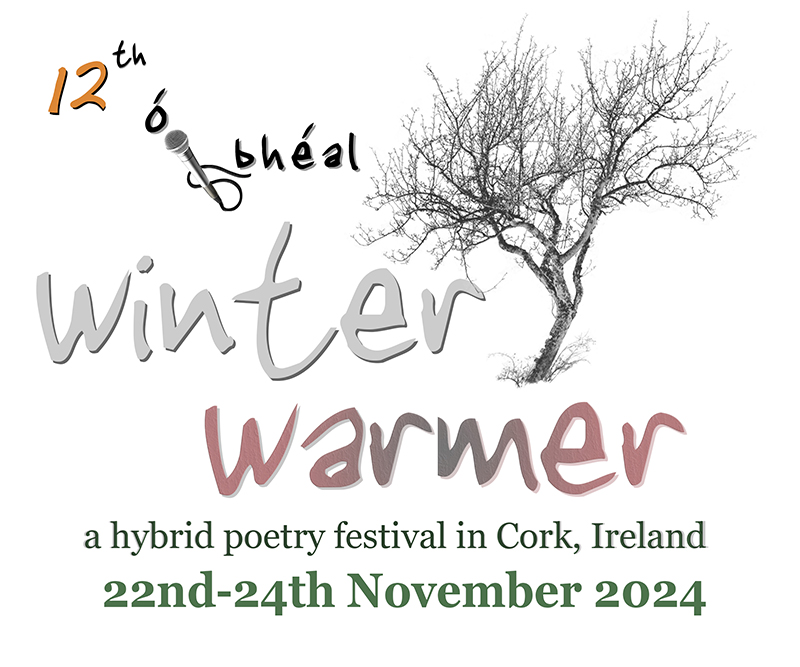


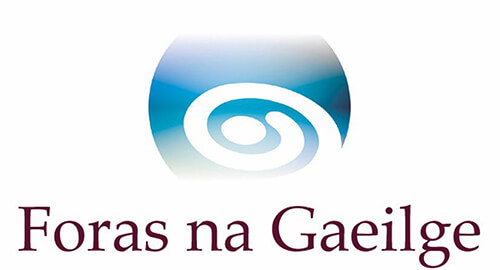
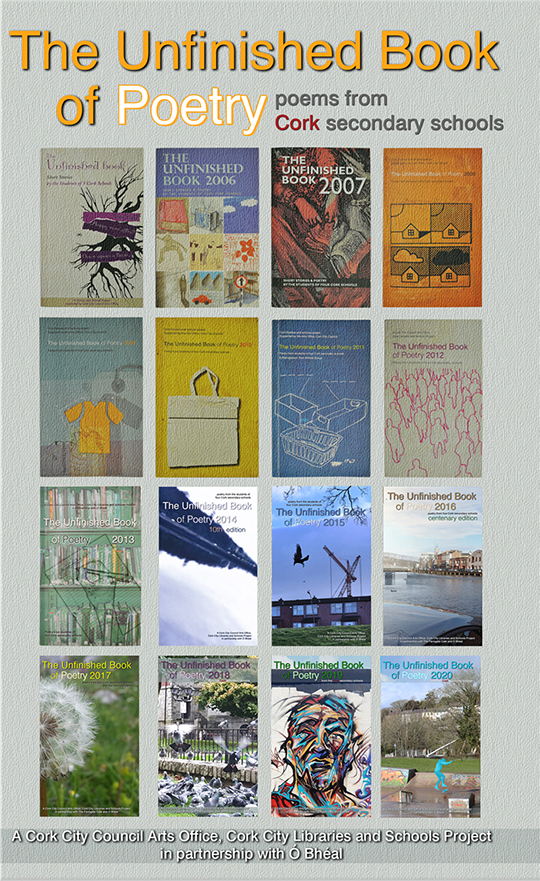



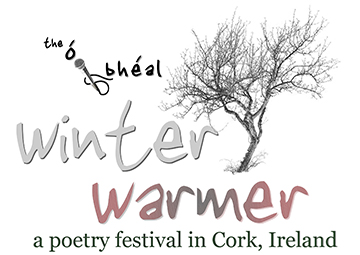

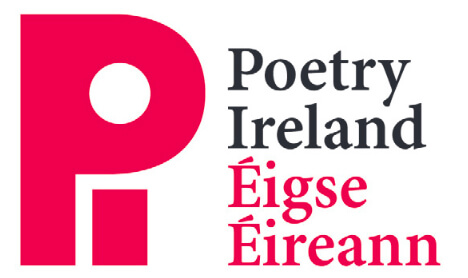
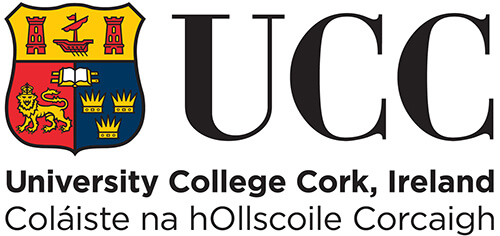
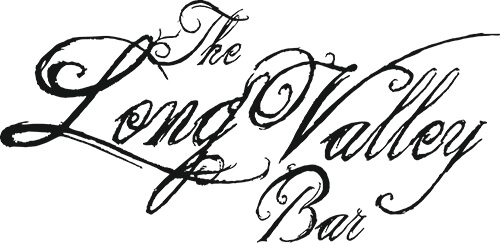
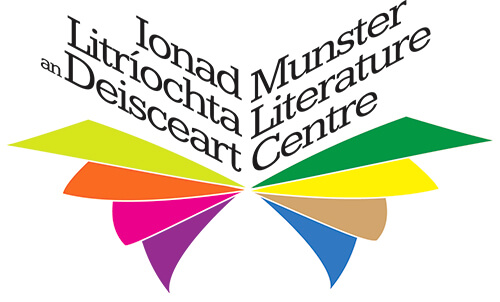
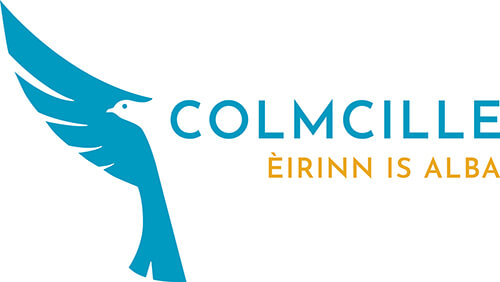

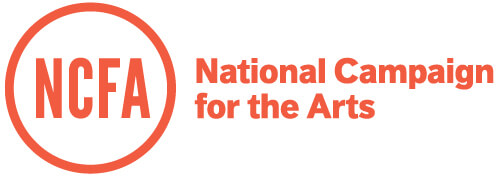

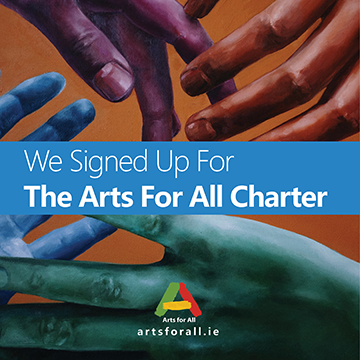
An Interview with Maighread Medbh
by Jennifer Matthews
JM: Your performance was particularly moving because of the delivery of the poems, sometimes involving song. Do you ever read your work out loud to help in the revision process?
MM: Always. And it’s also essential in the first draft.
JM: Do you see ‘page poetry’ and ‘performance poetry’ as essentially different media?
MM: No. More like the same subject, different specialisations; or like classical music versus rock. The performance poet experiences the words in his or her poem as physical entities inducing a kind of dance, and must respond physically and dramatically to them.
JM: You’ve said the science inspires you. How does a poem like ‘Unified Field’ move from theory to poetry? (Does this question make sense?)
MM: Yes, the question makes sense, except that the trajectory from theory to poetry is not always easy to describe, and may be very short or light-years long. What often happens, in my case, is that I always have a myriad thoughts in my head. A few of these come to the surface and stay swimming there. Then one day, something happens. It could be a minor event, such as a passing comment or a look on someone’s face, a scientific fact that pops before my eyes or a striking sunsheen on a tree. The event gives dramatic reality to the accumulated thoughts and a first line is born. The other lines might come without much effort or they might need some inducement. That’s how ‘Unified Field’ came into being. It didn’t need much inducement.
JM: Part two of your book is a requiem. Do you think poetry can help writers move past or cope with traumatic experiences?
MM: Psychologists have found that creative people can recover from traumas which destroy others or cause mental illness. In Pat Barker’s ‘Regeneration’, the psychiatrist says that mental illness can be caused by the inability to integrate certain aspects of one’s personality. This was the view of Jung and has given rise to a therapeutic method, using creativity, in the work of the psychoanalyst, Thomas Moore. So the answer is a definite yes, in two ways: firstly, the poet is by nature an observer, and that position gives one distance from all that occurs, because one is always creating dialogue between event and its transformation into a thing of beauty; secondly, working on a poem focuses the mind on form and detail, directing the energy outward and bringing about catharsis. Any form of writing will do this, but it must be disciplined. I’m not sure that simple outpouring achieves such effective healing.
JM: Do you have a favourite place or time that you find conducive to writing?
MM: I like my study and my computer, Sunday mornings and quiet dark evenings, but I write whenever and wherever I can. When I’m planning, I like to get out of the house and go to a neutral place, like a cafe or hotel. Many of the requiem poems were written in a nearby hotel lobby over a cappuccino or a green tea.
07/19/09; 6:56 pm
An Interview with Anamaría Crowe Serrano
by Jennifer Matthews
JM: I was interested when you mentioned that ‘What a 10 Year Old Knows About Sex’ was somewhere between poem and anecdote. When does work stop becoming a narrative and start becoming a poem, in your opinion?
AMCS: In my opinion the crossover between prose and poetry can be very fluid. It would be impossible to specify exactly when prose stops working exclusively as prose and becomes poetic. I tend to prefer poetry that stretches language in ways that prose doesn’t usually. It was in relation to language that I felt ‘What a 10 year old knows about sex’ failed to satisfy some essential poetic criteria which I usually try to apply to my own work. The mere fact of dividing the narrative into poetry-length lines (which is all I did with this anecdote) isn’t always enough for it to qualify as a poem, although sometimes that can work very well.
JM: I like the occassional surreal elements in your poems, like ‘I lick congo from my fingers/ and an elephant/ gets caught between/ my teeth’ from ‘Elegy.’ Do you prefer surreal poems as a reader?
AMCS: Not necessarily, though I like some of the French and Latin American surrealist poets a lot, the way they succeed in opening up imaginative interpretative possibilties by deferring to the subconscious. But, in general, my taste in poetry is fairly eclectic.
JM: You noted that Derek Mahon’s ‘Chinese Restaurant in Portrush’ was an influence for your poem, ‘The World Café, Dun Laoghaire.’ Do you recommend working from models for beginning writers?
AMCS: It’s useful for both beginners and more experienced writers to respond to the work of others, to be inspired by imagery or particular uses of language. Some of the time it happens unconsciously and I suspect probably every poet does it to some extent. What can be useful for beginners about using another poem as a model is that it forces you to really examine the poetic devices at work in the model and explore the craft behind it, so that you become very aware of the writing process. It’s useful to do this as an exercise across a range of poetic styles. When you apply aspects of other styles to poems of your own, you figure out what works for you and what doesn’t, and this helps you hone your own craft and give a shape to your poetic voice.
JM: During a conversation of ours, you mentioned you like to finish a poem before you start another one. Do you have any ‘revision tips’ for finishing a poem? How do you know if a poem is ‘finished’?
AMCS: Revision is a very personal process to each poet and depends on what you want to achieve with the poem. I’m not sure that I have revision tips, though I will say that reading a poem aloud helps you hear it quite differently from how it sounds on the page. The voice often highlights little things that you thought worked in black and white but fall flat or buckle when you hear them out loud.
Something else I do when I’m unhappy with a poem, is leave it settle for a while – a few days, or weeks, sometimes years – so I come back to it with a more objective eye. Time has a way of steering you to problem areas you couldn’t identify when you were too caught up in the emotion that goes into creating the poem.
I suppose you can be more or less happy that the poem is finished when it does or says something that you feel is worth doing or saying. On occasion, if you’re lucky, you’ll know instinctively when you’ve got it right. Sometimes (often) it never gets there and has to be ditched. In some ways a poem is never completely finished in that it’s always possible to tweak it some more. The revision process could be a lifelong one. (Derek Mahon comes to mind again).
JM: The poem you read about birdsong and the O’Bheal poem make brilliant use of sound. Do you often read the poems out loud when writing them?
AMCS: Ah, I’ve just answered that up above. Yes, it’s very important to me to read a poem aloud. Insofar as a poem can be considered finished, I’d rarely consider it finished if I hadn’t tested it out at least on myself, sometimes on others. It goes without saying that the more the poem is based on sound, the more important it is to make sure it works aloud and that you have a good idea of how you want to perform it.
06/4/09; 3:21 pm
An Interview with James Harpur
by Jennifer Matthews
JM: Do you think a poet must also be a reader to be successful as a writer? Do you have any particular influences?
JH: Well, you have to have an outline, at the very least, of the poetic canon in which you’re writing. It’s arrogance (and foolhardiness) not to. It would be like a painter not ever taking cognizance of Rembrandt or Picasso or Jack Yeats or the other greats of the past. The masters are there to inspire, not to imitate. And it also means that you don ‘t spend ages writing an ode to a nightingale only to find out that someone, a bit defter than you, has done it already. Reading is essential, though it must be said that no amount of reading will necessarily make you a better poet. There is no simple equation.
My influences tend to be non-poetic. I’m indebted to the vision of spiritual teachers such as Plato, Jesus, Carl Jung, and J. Krishnamurti – my poems are really inadequate translations of what they have expressed so beautifully in prose. As for poets: Homer is very good: The Odyssey is a marvellous amalgam of adventure and wisdom. I still feel deeply moved when Odysseus returns home to Ithaca in disguise and no-one recognises him except his faithful old dog. Virgil is exceptional – the sustained narrative of the Aeneid is a wonder; and the descent into the underworld a beautifully haunting episode. ‘Gawain and the Green Knight’ is what poety should be – crisp, mysterious and magical; and Dante’s Comedia is unlikely to be surpassed in terms of scale, ambition, spiritual vision and sheer craft. Blake, Yeats, Eliot and Ted Hughes are others who have combined extraordinary linguistic skill and musical ears with spiritual vision. And the one poet, who may be the best of the lot, and whom I’m saving for my dotage, is Jalaludin Rumi. Whenever I read snippets of his Mathnawi I feel like rushing off and writing a poem or chucking in the whole thing.
JM: I’m interested in how The Dark Age is divided up into three sections under specific headings. Part Two (The Dark Age) and Part Three (The Monastic Star-Timetable) seem to have common threads of theme that run through them. Do you find choosing a common theme helps generate poems?
JH: I think the operative word is ‘choosing’. In a recent review of The Dark Age by Tom McCarthy he described me as walking round the prison-yard of myself, more or less, and the prison-yard is the theme I’m stuck with. This is essentially trying to find spiritual meaning in a world that often seems devoid of it. The characters in my poems, such as Symeon Stylites, or the Irish saints, or the speaker in the poem ‘The Monastic Star-Timetable’ have glimpses of transcendence and express intense yearnings for something that will take them out of themselves. Yet at the same time they are all too aware of their humanity. For me this is the great conundrum of life – how to find meaning while knowing that the search for it is probably doomed to fail. So, to get back to your question – the theme has chosen or rather imprisoned me and I hope that some time in the future I will be released on remand for good behaviour.
JM: Something I enjoy about your poetry is the controlled but not constrictive rhyme and metre running through many of them. How do you choose the form a poem will take?
JH: It’s not really a conscious thing. I find that you start with a germ of an idea, a bit of yeast, a swallow darting past the window, and then this develops into something more substantial. The crucial thing is not to commit too soon to a form. Let the words and phrases begin to manifest, expounding the initial idea in a rough form and then let the form suggest itself – it almost always does if you have the patience, and the faith, to let it come in, like waiting for a cat to come in late at night through the cat-flap. My poem ‘Stroke’, about the death of my mother is a good example. Initially I wanted to cast the short sequence in a sonnet form to match a sonnet sequence I’d done about my father. But I couldn’t get it to work. The words were there, but not the form. I then realized that the pervading tone of the poem was shock and coming to terms with my mother’s very sudden death. Shock makes the mind repeat things endlessly (‘I should have done this, I should have done that’). And then it came to me the poem had to be a villanelle – repetition was the right means of expression, not the sonnet.
JM: What kinds of things do you consider when you are revising a poem? Would your poems go through many drafts before they are finished?
JH: A myriad things. Principally sound – I read the poem aloud and try to catch myself stumbling, usually a good indicator of infelicitous vowel sounds, or awkward consonants. I would also check for the quality of the phrasing, the strength and consistency of imagery, the movement of the poem – whether it’s too sluggish to start with, whether the rhythm breaks down; I check the title – is it really punching its weight and can I, by using it, dispense with the first stanza; I then try to forget about the poem, put it away for weeks or months and then bring it out and read it quickly, as if for the first time. If you read it slowly your pre-conditioned mind lapses into the same grooves which it found comforting the last time round. You have to try to surprise yourself. So, yes, the poem does go through many drafts, though towards the end it might be only a comma or a word that gets revised, and put back again.
JM: Do you have a favourite time/place for writing?
JH: Favourite time and place is not so important as uninterruptableness. I think it was Goethe who said he couldn’t work if he knew there was someone in the same building as him, and I feel exactly the same. I have to have the feeling that there’s no possibility of interruption. It’s only then that you can let go and enter the ‘sacred trance’, the kind of ‘active imagination’ that Jung describes, a sort of focused reverie that veers in and out of the poem you are working on, sometimes feeding it and sometimes taking you away into different realms, but always necessary. Any fear that you might be interrupted inhibits the reverie – at least that’s how it works for me. Otherwise I don’t mind where I work and at what time – I’m not a night-owl or morning lark but a hermit-crab seeking solitude.
James Harpur’s most recent book of poems, The Dark Age, is the winner of the 2009 Michael Hartnett Award and available from Anvil Press.
05/23/09; 6:27 pm
An Interview with Rick Mullen
by Jennifer Matthews
JM: You mentioned that metrical poetry is your major interest. What does writing in metre bring to a poem for you?
RM: Writing in meter takes me places that I can’t reach otherwise. I would compare it to drawing without looking at the paper. These things seem hardly comparable, but they both have the effect of pushing aside immediate cerebral impulses and forcing you to concentrate on and dig into the model. Writing in meter, I become more receptive to what is actually observed and much more susceptible to having words, lines, and narrative direction drawn from me than I am when writing free verse. There is a certain irony to how imposing form removes a filter that is more restrictive than any meter or rhyme scheme. I also fall for the traditional beauty of poetry in form. In the end, however, the form needs to recede to the engine room. I don’t admire poetry for its form.
JM: There seemed to be a bit of a spirit of Ginsberg about some of your poems. Do you count him as an influence?
RM: I’m very flattered to hear that! I admire Ginsberg greatly. A lot of joy and love and humor comes across to me in his work. He was very creative and spontaneous. The book I’ve written, Huncke, by the way, is about Herbert Huncke, the prototype beat who had an influence on Ginsberg’s poetry. Ginsberg is the main character in one of the cantos, and he’s mentioned in others. Howl is heard in the background here and there throughout book. So, I’ve gotten a lot closer to Ginsberg in the last three or four months writing Huncke.
JM: Your performance of the poems at O’Bheal was quite strong! Do you work on how to ‘say’ a poem before you bring it to a reading or open mic? Does saying the poem out loud effect the final draft on paper?
RM: Thanks. Well, I think that poetry is meant to be performed, not simply read. In the two recordings I have heard of Yeats reciting, he is chanting. He’s essentially singing. And, of course, the origin of poetry is song. Ray Pospisil in the foreword to his chapbook Some Time Before the Bell actually recommends that readers read the poems out loud. That is very good advice. I certainly do work on reciting a poem, even in the writing process. I look for the natural voice and the right tonal qualities and rhythm. I try to maintain integrity and I avoid getting too ‘into character.’ But as I get better at this, I find that each poem acquires something of a unique voice. I chose a few flamboyant pieces for the O’Bheal reading, such as ‘The Theme from Shaft’ and ‘The Sandwich Man of Thornall Towers.’ They entail relatively high levels of drama.
JM: You have published a chapbook and are on your way to a first book of poetry. Did you have a mentor or group that helped you get to that place, or is it a matter of hard work and persistence?
Hard work matters even more than persistence, but persistence is also required. It is also very important to meet people at open mics and to take advantage of the on-line critique boards. There are good boards that are ‘formal-friendly,’ if not ‘formal only.’ My chapbook, Aquinas Flinched, was published by Modern Metrics, which used to run a monthly reading and open mic in New York. I was a regular and I got to know Nemo Hill, who runs the press with Quincy Lehr. Quincy, who was in Ireland at the time, I had met on the critique boards. Seven Towers in Dublin, which is publishing Huncke, saw early cantos of the poem on a critique board called Eratosphere and expressed an interest. Modern Metrics and Seven Towers move in roughly the same circle, and the two are making some interesting connections between New York and Ireland. They recently launched a Brooklyn pendant reading to the Last Wednesday reading Seven Towers runs at Cassidy’s Bar in Dublin. So, I’ve found networking and workshopping to be very important in developing my writing and getting it published. I don’t really have what I would call a mentor. Mentoring relationships can be tricky. But I am influenced by very good writers who are also friends. The Internet can be a good thing for establishing small communities of shared interest. I think that on the Internet such things are called networks.
JM: How do you personally determine when a poem of yours is ‘finished’? When is it time to let go of a poem?
RM: Tough question, as you know. There is a general sense one gets that a poem is finished. But I will go back and revise at any point. It is a good idea to let a poem settle and come back to it in a disengaged, to get a feel for how a first time reader will read it. Workshopping is very important as well. There is no formula that tells you when you are finished, however. I am, I think, becoming more patient with my work, making sure I give it that time before I count a poem as ‘finished’.
Rick Mullins’s chapbook, Aquinas Flinched is available from Modern Metrics.
05/4/09; 4:37 pm
An Interview with Lothar Luken
by Jennifer Matthews
Jennifer: You’ve obviously been living in Ireland for quite a long time. As someone who was originally from a different country, do you think this influences you as a poet?
Lothar: Came here first in ’73 and have been living near Bantry since 1980. One influence is obvious: I’m writing in English – which I find far more useful for poetry than the cumbersome German. And it means I’m writing in the world language (and just got a poem published in Australia). This island has its effect on me in that I’m writing a lot about the sea – both as location and metaphor. (had I stayed in Duesseldorf, I’m sure it would have been the Rhine…). I’ve only written one poem about immigration – but several on isolation and feeling strange – but I felt that way in Germany too… What alienates me most is the close connection between pints and poets in Ireland… As a writer I’d be far more at home in a cafe…
Jennifer: Can you speak a little bit about your ‘revision’ process? Do you show poems to friends for feedback? How many drafts do you typically write?
Lothar: It usually starts with an idea, an observation or something interesting with words of which I make a note. Then I type up something raw. Days later I go back to it and knock it into some shape. There it could remain for months or years. Then it gets polished. Then it gets cut down, often brutally. And so it stands. And then gets quibbled with and honed and a word changed here, a comma deleted there. And its finished. And then I find a word that’s obviously better – or a stanza that sounds great but is really superfluous… and so on.
Jennifer: A few of your poems were intensely personal and examined the dynamics of the parent-child relationship. Do you find poetry to be a therapeutic process?
Lothar: Yes. You have to clarify what you really feel and think – and then try and communicate it. Performing ‘Air’, a poem about my father strangling me had me in tears a few times – and that was surely cathartic – and perhaps also for the audience. I believe in coming clear about one’s shit – and thus learning and showing how we all have these demons and injuries and weak spots. And doing funny poems and have the punters laugh is of course also therapeutic for us all.
Jennifer: A line in one of your poems goes, ‘We are not our brains,’ and I was reminded of the philosophy of Eckhart Tolle (author of ‘The Power of Now). Is he an influence on you and your writing?
Lothar: No. But I’ve read him and he makes a lot of sense – yet he’s still clinging to the ‘god-delusion’ and his Christian background. That I’m not my brain was the most important insight from my battle with depression – and gave me a handle on the problem – and left me with the quest(ion): what, then, am I really. And on to a spiritual journey that after 25 years has left me on the shores of atheism and writing for Humanism Ireland.
Jennifer: The environment seems to be a frequent topic in your poetry. Do you think poetry has the power to influence society in crucial issues such as this one?
Lothar: I was the editor of Earthwatch, the Irish environmental magazine, for 6 years and I had an influence then – if only because we had a much larger print run than any poetry mag. in Ireland… In my poems it’s more about attitude now, being more reflective, more aware of consumerism and the growing superficiality of our society. I once read a poem to thousands through a megaphone at an Iraq war rally – but I don’t think poetry has much influence when only a few thousand people read the poetry mags and having 2 or 3 dozen folks at a reading is a success…
04/7/09; 10:51 pm
An Interview with Robyn Rowland
by Jennifer Matthews
Jennifer: Is there any particular place or time that you find most conducive to writing?
Robyn: I am a single mother of two boys and have been so for 15 years so time is a big issue! I always say in workshops though that it doesn’t matter what we are doing in life, there is always a way to create space to write – if we really want to. I used to think that I needed a whole free day, but of course, if that comes along, I suddenly need to do the washing! I put obstacles in the way. Now I do volunteer work for the Australian Poetry Centre and it takes up time all right, but is a great excuse for the ‘business’ of poetry instead of the writing of it! I think there is always a pull-push with writing. I want to do it but the fear is always there that I can’t. So the blank page is scary. And yet, what joy there is in the actual writing, in the lost-self of that, the no-self of it.
I find there are stages in writing poetry. First, it is a life lived inside it. I mean, that poetry is something we be rather than do. It means living with our skins turned inside out, with our attention on life, on what people say and do and the things that the world offers up to us. There is almost an innocence in this openness to life.
Then comes the taking of notes – in my case, all those bits of paper that have scraps of lines on them – from post office forms to scraps of paper from the gym! – which later I try to put into notebooks but…. these are the raw materials. Later, in the next stage of writing – the sitting down to do it – comes the moment that so many artists try to label and explain. A bit like prayer, a lot like meditation, a moment of entry, when the self is lost and the poem entered. The recording of that.
Basically, I write at my desk, surrounded by chaos – and I have only a few hours in the days. I like best a Friday night on my own – no kids – when I can go into the early hours if I need to. The silence is crucial. I love that sense – rare for me – of time there that won’t be interrupted.
Jennifer: Could you describe your revision process? Do you do lots of drafts or try to keep to the flow of the original?
Robyn: Yes, then the revision. I do lots of drafts and also try to keep that original flow – the rhythm particularly. Because I write free verse, I have to work harder on internal music and use line endings to determine the reader’s breath. I hope! So a lot of thought goes into those line endings. It helps to read the poems out loud. Then you can hear when the line ‘clunks’ or if you feel embarrassed – it means your self-conscious ear has felt awkward and then – the line goes.
The hardest thing is to cut lines. I find I often have to take out the last 3! My tendency is to repeat the point another way in case no-one got it in the first place!! An old left-over from lecturing days.
The poem should, I think, read easily- as if no effort has gone into it at all. I think Fred Astaire said that about his dancing. If it doesn’t look easy, you’ve failed!
Some poems are then altered many months later – the last tidying up – and before sending them out for possible publication.
Jennifer: I was particularly touched by the poem Young Men (among others). I felt the description of the goodness in men was honest and I recognised many young men I’ve cared about in it. This poem struck me as particularly unique because we women don’t often write men in a positive light. If you feel comfortable telling us, what prompted you to write this poem?
Robyn: Oh that is only good memory! I had been separated for 8 months from the father of my children after 10 years in that relationship. The boys were only 18 months and 3 years old. I felt I’d never have intimacy again and that horrible sense of low self esteem about myself that can come after a terrible, long and hard break up. Then along comes this young man – he was 25 and I would have been about 44. What can I say, Dear Reader – I was seduced! Couldn’t believe it! And then, it happened a couple of times and I ended up being talked into a relationship for 3 years with a man 20 years younger than myself. I have a sequence of poems in Fiery Waters about that. It was a very loving time. I ended it.
I found throughout this period that I really respected and loved these young men and that they were not at all like the young men I knew when I was young! They were much more caring and considerate, more loving, more eager to talk and of course ….. more careful ….. not so rushed. The poem says it all.
Now let me say, twelve years later, I am personally attracted to ‘older’ men, a little worn – more like myself! But I am left with the warmest feelings for those younger men who seem to me often more admirable than those I knew when I was young. It was a gift in my life, that time. I wanted to give that back to young men and I only read that poem in particular settings where I see young men who love poetry and will take it away as gift. It is also written for young women – and the middle aged – so that they might look again and see it all perhaps slightly differently. And this, from an old radical feminist from way back!!!
Jennifer: You mentioned that depression was a major theme in Silence and its Tongues – do you find writing therapeutic?
Robyn: I’m not ever sure about this. Yes, but it’s not done for that reason. I find it is therapeutic in the sense that finally I have hold of something unfinished in life until it’s recorded. I feel I’m a historian of intimate history and that this history is not just my own, but is shared by other people. I have written photo albums in a way, and once they are done, the job is finished. I don’t have to hold onto the memories anymore – it’s on paper. For the good memories, that works too – and these can be about place. The many poems set in Connemara are, in my mind, a gift back to the place and the people who live there. They are my version of a kind of personal history of that place and time, written so others can recall it too. They are an act of gratitude, not therapy.
Jennifer: Many of your poems referred to or were about family members. Do you show them these poems? Do you feel it difficult not to censor yourself when writing about someone you know?
Robyn: Yes, sometimes I do show them the poems before I publish them if I think it might be raw or sensitive – the poem Love’s impotence, about a friend’s son’s death for instance. If I write a poem for a friend I always ask if it is ok with them to put their name on it. But family is different! My mother is dead and I don’t know what she would think of Dead Mother poems. I think she wouldn’t understand some of it at all. But I was exorcising ghosts there. I showed these to my father before the book came out and he wept. I don’t know if he has read them all even now. There were also three poems I did NOT publish in that sequence which I did not want him to read. They would shock and hurt too much. One is central to the theme. But, it’s not necessary. They can wait.
So there is a self- censoring that goes on I think. The poems can be written but do not need to be published until, and if, the time is right. You have to be true to the hard things in life as well as the soft. But I think you also have to care for other people and take a moment to think through things. Will I be happy in 20 years for that poem to be in print?
The poems I have for my father – and there seems to be one in every book – he loves so much he has them framed! My brother never reads the books anyway – hey, I could really get going there!
With lovers – well … fair game I guess. Don’t put any names in! I suppose most of those poems are loving so I don’t feel there is a problem. But I didn’t show those before going into print on most occasions. Again, it’s like a snapshot album of life moving by. I’m thinking here of one particular book, which the man the poems are about really loves as being ‘so true to that time in our lives’.
But I don’t write the stories that are not mine, if you know what I mean. I only write my story in it – what I felt and what I experienced. You might know other things about a person, but that story belongs to them. It’s hard to describe. I suppose I think integrity is important, so it’s being true to something; true to what you know and think is important to share about being human and alive and flawed and glorious. And poetry, I think, shouldn’t be used to hurt or score points. It’s an art where the human soul can be really open and vulnerable.
10/26/08; 9:54 pm
An Interview with Dairena Ní Chinnéide
by Jennifer Matthews
Jennifer: A couple of your poems, including the poem about Galway and the one titled Good Friday Invasion, seem to be concerned with changes in Ireland. Is this often a theme in your writing?
Dairena: I certainly observe the changes in my home place as a result of tourism – something I touch on, not necessarily a biggie though.
Jennifer: Does working with translation / translators affect your writing process in any way? Do you find you write about different topics when you write in Irish than when you write in English?
Dairena: I don’t work with translators. I translate my own material. I have a process whereby once I am still in the moment of writing the original Irish poem, I do an English version. I find it difficult if I leave it. The English are versions not necessarily direct translations, I try and embody some of the original energy in the English rather than emulate meanings of words which quite frankly are untranslatable. Regarding writing about different topics ….no that’s not the case. If a poem comes, it comes in Irish unless I am writing to a specific project which necessitates writing in English first. The topic is not necessarily English or Irish.
Jennifer: How many drafts do you generally write of a poem? Do you ever enlist the help of others in your revision process?
Dairena: I only do one draft. No help required.
Jennifer:I loved the rhythmic pacing of your poem about Galway. Would you say that the sounds of words are a key component to the success of a poem?
Dairena: Especially writing in Irish the rhythm and music of the words can take you over and it’s such a beautiful sound.
Jennifer: Which poets would you say are an influence on your writing?
Dairena: I don’t see any group of poets influencing me. It’s a personal journey.
Dairena Ní Chinnéide’s collections The Warrior and other poems: An Trodai agus danta eile and Máthair an Fhiaigh / The Raven’s Mother are available from Clo Iar-Chonnachta Press. She has a new collection forthcoming in 2009.
10/9/08; 1:48 pm
An Interview with Knute Skinner
by Jennifer Matthews
Jennifer: Some of poems you read were quite spiritual, yet anchored in nature through surprising conduits like cows or earthworms. Would you say writing is a spiritual act?
Knute: I hesitate to say that writing, in itself, is a spiritual act. But I have had, for some decades now, a spiritual view of nature which includes all of the physical world, including earthworms, and that naturally enough makes its way into some of my poems.
Jennifer: Is there any particular time of day or place that you find most conducive to writing?
Knute: Although I have impulsively begun poems on a bus, out in the garden, by the roadside, etc., I have written most often and best in a familiar location, in the morning. Just now, the familiar location is my study, and I try to get there early in the day before cares and considerations have a chance to distract me. There is a lot to be said for sitting in front of a blank sheet of paper until – on a good day – something starts to happen.
Jennifer: When revising or re-working a poem do you have any strategy or process that you usually go through, or is it different for every poem?
Knute: I’d say that each new poem poses different challenges. In some cases, an early draft may be too long, in another, too short. In one, there may be too little imagery, in another, too much. Rhythm may need attention. Probably the one most common problem is getting the best word (not just a suitable word) where it’s needed. In all these instances, it’s helpful to put yourself in the reader’s place – but often that isn’t easy, especially in the early stages.
Jennifer: A couple of your poems were commissions- did you find it difficult to write to an ‘assignment’?
Knute: Not really. I thought it would be difficult if not impossible, but once I began, it came more easily than I expected. It may have been helpful that in each case I had something quite specific as a stimulus – in one case a photograph and in the other case a poem.
Jennifer: You read a lovely Karl Shapiro quote, “Praise something, anything,” which was his advice to new writers. Have you any advice you like to give to new writers yourself?
Knute: Two bits of advice. One, if you haven’t done so already, read as much of the great poetry of the past as you can. Two, take pains with your work. There may be short-term satisfaction in rushing a new composition off to an open mic or posting it off to an editor, but the real satisfaction comes with working at something till it’s right.
Knute Skinner’s book, ‘Fifty Years’, is now available from Salmon Press. He has also
recently been anthologised in Salmon’s ‘A Journey in Poetry.’
09/14/08; 8:19 am
An Interview with Niall Herriott
By Jennifer Matthews
Jennifer: How do you think your scientific background influences your writing?
Niall: Well, my background in the environmental sciences has given me an awareness of the multi-faceted crisis facing humankind. I suppose the novel I’m working on is a form of ‘faction’ related to this and some of my poetry and stories are around this, but I really want to get away from it and attempt what I see as ‘real’ poetry!
Jennifer: And what do you see as real poetry?
Niall: I think it was Michael Longley who said “if I knew where poetry comes from I’d go there!” It’s hard to pin down what real poetry is but I think we all recognise it when we see it and hear it. I think I write verse mostly but as Derek Walcott said, “It is the continuous practice of verse that eventually leads to poetry,” which is encouraging! Some other quotes I’ve written down that might be helpful:
“A poem is an attempt to find the music in the words describing an intuition,” (don’t know who said that but I like it).
“A poet is not interested in describing reality but capturing it” – Brendan Kennelly.
“Poems come out of wonder not knowledge” – Lucille Clifton.
And someone said that good poetry cannot be defined only experienced. So far be it from me to try and define it!
Jennifer: You read a lot of poems which referenced family members. Do you give them as gifts to people you care about?
Niall: Yes, people seem to appreciate them as gifts. Unfortunately both my mother and my father and my uncle had passed on before the poems for them were written.
Jennifer: How much do you revise a story or poem after you’ve written it? Can you tell us a little about your process of revision?
Niall: Maybe a poem is never finished – it can always be improved. I find reading it aloud is a good way. Workshops such as the ones at the Munster Literature Centre are a good way to get honest reactions and have another go at the poem. Stories I don’t revise very much. I feel they are either going to work or not early on, but Claire Keegan told me the average number of drafts of stories she does is at least 30!
Jennifer: Your short stories are quite ‘voicey’, employing many accents and nationalities. What draws you to a more international cast of characters in your stories?
Niall: I suppose this is because I have travelled a fair bit and I also find it makes for more interesting dialogue to have well-contrasted characters who sound somewhat different to each other.
Jennifer: You wrote a tribute to/satire on Hemingway, one of your influences. Do you think reading the masters can help us to be better writers?
Niall: Yes definitely, though how much is consciously I don’t know. Anyway, reading good writers is certainly the best way to improve one’s writing and to build up one’s enthusiasm for writing.
08/18/08; 3:10 am
An Interview with Dominic Taylor
By Jennifer Matthews
Jennifer: How do you think your work as a musician influences your writing? Do you think music can open doors for your writing and vice versa?
Dominic: As a songwriter as well as writing poetry I have always worked with words first. I try to find the music in the words I write so rhythm and metre are important to me. My natural inclination is to find a beat, once I have found that I can keep going and get the song/poem finished (in first draft form anyway).
Reading poetry has been a great advantage in my song writing because here are what I call refined ideas and often I get an idea and can write a song after reading a poem.
The main difference I find between writing poems and songs is that in poetry you really are looking to say things in a new way, whereas in songs you are always looking for something memorable – a hook, if you like. Some people will say that in song writing you go for the ‘lazy’ option or cliché but that’s not taking the music aspect into account. Words and music create a powerful momentum for communicating with people and at the end of the day (another cliché, sorry about that) if we are not touching our audience some way then we are like the tree falling in the forest with no one around – does it really make a sound!
Jennifer: I was struck by your ‘list’ poems. Where did the original inspiration for these come from?
Dominic: I’m a lazy bastard at heart!
Jennifer: Can you tell us a little about your revision process? Do you ever enlist the help of others to get a fresh perspective?
Dominic: I love to enlist the help of others but it’s very difficult to get honest critiques of your work. If I show a poem to a friend I nearly always disregard the comments. No matter how well you know or respect them it is almost impossible to get an objective view of the poem. I prefer to put the poems away and come back to them, sometime days weeks later, let them mature and the heat of first love has faded, so to speak. Invariably you see what’s wrong or right with it.
Jennifer: The poems about your wife and the one about your brother were quite moving. Do you show poems to the people you write about?
Dominic: I have no set rule on this, sometimes I do, sometimes I don’t. I suppose like Montaigne I say things in public that I would never say to people individually.
Jennifer: Childhood seems to be present and a theme in many of your poems. Do memories often serve as a source of inspiration for you?
Dominic: When I started writing poems I did not know where to start, the only source material was my past, so I used this as my raw material. This, in many ways, works as a cleansing of our psyche. Here we can explore and put to rest the pain of just growing up, etc. But you must take it further – I see many people come to our open-mic session in the White House with two or three really good poems, invariably about some personal past experience, and then they fall away either in terms of quality or quantity. It’s as if they’d yearned all their lives to get this out of their system and once they have done it, it’s enough. In many respects this is the art of poetry – drawing something out of your deepest core and giving it the light of day. I’m all for this, but it’s the people who go on to develop the craft of poetry who eventually derive the greatest satisfaction out of it and continue to write quality stuff. So, yes, my past and everyone else’s past is important but it’s the everyday ‘now’ that continues to sustain me in writing poetry.
08/16/08; 11:00 am
An Interview with Seán Callahan
By Jennifer Matthews
Jennifer: I was quite interested in your statement, ‘Poetry has become my personal mythology.’ It strikes me as more important than saying something like ‘Poetry is my personal history.’ Can you tell us more about the connection you see between poetry and (personal) mythology?
Seán: I love studying history and one day I want to go back to University here in Ireland to study archaeology and history. But, as I said on the night, my own belief is that mythology is a people’s or a person’s attempt to redefine the world so that they may better understand it. It is not just a relation of incidents. Mythology reshapes the very essence of concepts and events so that many more people can understand. There is an importance in everything when mythology is concerned. Landscape has power and meaning beyond its physicality.
My poems have become an extension of my personal mythology because they reshape events, moments, experiences, and feelings. My poem “Rooster” was based upon my first memory, being attacked by a rooster, but that poem isn’t a history of the incident. It is a redefinition of that experience which is much more than a simple relation of what happened. I was able to channel both the thoughts of myself as a three year old and myself as an adult looking back to create a new story. That is something that mythology has that history can never duplicate.
Jennifer: Can you tell me something about your writing and revising process? Do you get help from other writers when revising? Do you do many drafts?
Seán: A lot of my poems are written with intent, and by that I mean that I normally have an idea of what I’m writing that is formed by a root image or phrase. The base of each of my poems is usually made from impressions that I record in various notebooks; phrases, words or images that stick out in my mind. It can take many drafts or very few drafts to get the right flow, ease of transitions, word images, enjambments and everything else that make a finished poem a finished poem. What is very rare is to write a poem straight through and to look back on it and know that it’s finished. Those are pure gems.
Jennifer: The O’Bheal audience really responded to your poem about a bypass being built in a rural area. Is industrialisation a theme you are particularly interested in addressing as a writer? Are there any other topics you’re particularly interested in?
Seán: That poem, “Bypass”, was inspired by the effect that a scarred hillside had on me. However, industrialisation is not a theme that I have touched on often. Any time that I have, it is usually prompted by the effect that industrialisation has had or is forcing upon the landscape.
Jennifer: I particularly enjoyed the loving description of the Kentucky landscape found in your poetry. Do you feel that the landscape of home can have a strong influence on writers?
Seán: I can’t speak for other writers, but the landscape of home has certainly had a strong influence on me. I grew up on a farm in rural Kentucky, where there weren’t many close neighbours and even fewer kids. The development of my own imagination was heavily influenced by the countless hours that I spent in the fields and the forest. In fact, after my family, the land of Kentucky is the only other aspect of America that I really and truly miss. I was lucky that my upbringing gave me an early appreciation of nature, which has only grown as I have grown, and I take that appreciation wherever I go.
Jennifer: Has establishing your life in Ireland had any particular influence on your writing?
Seán: I’m not sure if establishing my life here in Ireland has had any singular influence on my writing, however I don’t doubt that Ireland has strongly influenced the poems that I have produced. I’ve certainly grown as a poet during my time here and there are future projects already planned which are directly related to Ireland. I think that the knowledge that I live on an island that for thousands of years has respected the art of poetry, in all its various forms and purposes, gives me a great sense of comfort and confidence to continue to write.
Seán Callahan has recently published his first chapbook of poems, Lore.
06/21/08; 8:29 pm
An Interview with Miceál Kearney
By Jennifer Matthews
Jen: Can you tell me a little about your revising process? Do you do multiple drafts, or stick to the poem’s first incarnation?
Miceál: Multiple drafts is an understatement. For some poems it’s an entire rainforest of drafts. I’ve a collection coming out, Inheritance by Doire Press, and the poem Under a Sapling Beech took me, on and off, two years to get it as it appears.
Jen: Do you ever workshop or look for feedback on your poems from other writers?
Miceál: Workshops, I recommend them. Invaluable experience is gained from both the facilitator and each participant. And yes, I do look a feedback from other writers.
Jen: Something unique in your poetry is the strong voice in your writing. Do you always memorise a poem once it’s written? Would sound be a big influence on your writing process?
Miceál: Thank you. Yes I do memorise my poems, but only the ones I read. As for sound, only in regard to the tone, how it is read and written.
Jen: Technology seems to be a recurring theme in your work (computers, playstations, etc). What draws you to this theme? I’m particularly interested in why you juxtaposed the birth of a calf and winning a video game. That poem has really stuck with me.
Miceál: To answer your first question, I hate how depended we’ve become on technology and computers… but I am answering you via email so… The second, I like the idea of reality: how, at the same time, someone can kick a ball – the UEFA winning goal, someone else blows themselves up, porn is Googled, people get high while lambs and calves are being born.
Jen: The line, ‘I’m still a magpie picking at the corpse of my childhood,’ was chilling and profound. Do you think this is something all poets have to confront? Do you feel your poetry deals with past events explicitly or in a more removed way? (Have I quoted the line correctly?)
Miceál: ‘Today I am still the magpie
picking at the corpse of our childhood…’
Well, at the end of the day, you don’t have to. You can write how you would watch your mother cry as daddy would beat her… or just make it all up. Personal poems are easiest to write but also the hardest to get right. But you’ll get that, especially when it deals with your family. Sometimes the more removed, distant and cold you are in a poem is just affective as shock and awe piece.
Many thanks to Miceál Kearney. His collection, Inheritance, will be coming out soon from Doire Press.
05/15/08; 3:25 pm
An Interview with Trish Casey
by Jennifer Matthews
Jennifer: Can you tell me a little bit about your revision process? How many times do you typically revise a piece?
Trish: Once upon a time I used to rewrite pieces 60 or 70 times by hand. But, to be fair, some of this revising followed the Wildean pursuit of adding a comma in the morning and removing it in the afternoon. Some writers see revising as a chore, but I think rewriting and editing is the precious process that actually teaches us how to write. (I don’t need to do so many rewrites these days.)
Jennifer: Do you ever enlist the help/feedback of other poets or performers?
Trish: Yes, I certainly do ask other writers for feedback on my work. Objective opinions are crucial. Come to think of it, sometimes the reaction of an audience tells me all I need to know about a new piece – whether it works or not – if it works, it stays with the audience; if it doesn’t, it comes back to me.
Jennifer: Who do you see as your audience?
Trish: I see my audience as Anyone.
Jennifer: You mentioned how much you appreciated that one of your poems appeared in a Geography textbook, because it reached an audience beyond the typical poetry crowd. How important is accessibility to your work?
Trish: That Bungalow Nation found its way into a national newspaper, a heritage magazine and a geography textbook, means the piece belongs in the world at large rather than in the confines of a literary publication. (I’m sure some would argue that such a piece has no business in a literary publication in any case.) Anyway, this reminds me of something a friend once explained to me about fine art. He said he would never visit a gallery, because he didn’t understand the idea of housing works of art in particular buildings set apart from our every-day lives. He believed that art should live amongst us in our day-to-day activities – we shouldn’t have to seek it out in the rarefied halls of an art gallery. Whatever about fine art, I like the idea of poems living amongst us, rather than being cocooned in the relative seclusion of literary publications.
Jennifer: Do you often write poems that have a persona or character speaking?
Trish: Yes, ‘voices’ are present in a great deal of my work.
Jennifer: How is a character-based poem different to one that is strictly from the author’s voice?
Trish: A character-based poem will often cut out the need for narrative, explanation or contextualizing. The character’s words bring you immediately to the core of what I wish to convey. It’s probably because I’m an actor and a singer that I utilise voices so much.
Jennifer: As a performer, do you ‘write’ with or without paper? (Do you ever create poems through spontaneous performance or in your imagination prior to writing them down?)
Trish: Yes, it isn’t unusual for me to be already working on a piece before I write it down or record it. But I’m at risk of forgetting it if I don’t commit it to the page or record it on time. Once I have it written or recorded I can then develop it further.
Jennifer: You expressed the idea that humans are a failed project.
Trish: If our purpose here is to inhabit our humanity to the full, then yes, it certainly looks like we are a failed project or a failed species – if not completely failed, then certainly failing fast.
Jennifer: Do you think poetry can help us succeed?
Trish: It will take a great deal more than poetry to turn us from our current path of ignorance, avarice, violence and destruction. I think the Tipping Point and Critical Mass theories come into play here. (That is to say, when a certain percentage of the human population reaches a heightened state of awareness, then that consciousness will permeate the collective consciousness of all humanity.)
If survival of our species was solely dependent on intelligence, then we wouldn’t have created the chaos in which we now find ourselves. But, in my understanding, survival of the species is not dependent on intelligence, but on enlightened or heightened awareness.
Poetry can help in consciousness-raising – but, obviously, its ability to do so depends on the consciousness of the poet. It is not as if every poet is a truth-seeker, a visionary or a seer. My understanding of human beings is that we are either controlled by the ego or guided by the spirit. Poets are no different from anyone else in that regard. Having said which, I realise that such a view means shag all to those (including poets) who don’t believe there is such a thing as the spirit or higher consciousness, for that matter.
05/15/08; 3:21 pm
Finally had a Monday night off, so, paid a visit. Had heard positive things and was not disappointed. Lovely welcoming atmosphere. Thanks. See you next Bank Holiday Weekend.
regards,
Eileen
05/11/08; 11:15 pm
I was searching for Poetry Festivals and found your site. I very much like your clear uncluttered listing. I am also looking forward to viewing the selection of videos in the In Motion – Poetry and Film section and the other pages in the site. Not being in the Cork area, I didn’t know about the Open-Mic nights, but will look forward to a night out in the Long Valley the next time I’m there.If you have no objections I’d like to include a link to the festivals list on my own blog?
All the best, Michael
05/11/08; 1:58 pm
Ive just discovered the site, and am going to explore it now. Never done a reading or been to one, but have uploaded readings of my own poetry on my website. Hope you enjoy… sign the guestbook if your there!!!
Ive to get the Irish poems up on the site soon so you can listen to them!!!
03/27/08; 4:18 am
I’m planning on interviewing most of the guest readers regarding their writing process. This is something I’m interested in as a writer, and think might be useful to other O’Bhealers as well!
Gearoid Mac Lochlainn was the first to contribute his time and wisdom! The results of the interview are below:
INTERVIEW WITH GEAROID MAC LOCHLAINN
28 February 2008
Jennifer: Do you always write poems and songs on paper, or do you think about pieces before you write them down?
Gearoid: I think about them while walking about because I walk a lot and find that ideas pop into my head. Then I might write down a note or two and see how it grows. Or I might just record random lines as they arrive and shape them later on white sheets of paper. Peripatetic school of poetry.
Jennifer: Does the language you write in affect the choice of topic or tone of the poem? (Would your Irish pieces vary greatly from your English pieces?)
Gearoid: Yeah the Irish pieces have a different tone – I write a lot about this in the notes to Stream of Tongues (published by Cló Iar-Chonnachta) which you can order on line from the publisher.
Jennifer: Do you revise work alone? Do you consult with friends or other poets/songwriters?
Gearoid: Alone.
Jennifer: Can you tell me a little bit about your revision process, perhaps describing a recent effort? Do you have a structured approach or do you treat each piece individually?
Gearoid: I tend to overwrite pieces and exhaust all avenues and ideas of sound and rhythm. Then I try to ruthlessly cut them down into pieces that I can perform or that make sense on the page. I continue to edit for performance of the pieces as I find the poems are never finished and may take on different forms and versions or turn into songs or whatever. It is a very fluid process and nothing ever stays the same or is written in stone.
Many warm thanks to Gearoid Mac Lochlainn for his participation in this interview. His book and CD set, ‘Stream of Tongues’, is available from Cló Iar-Chonnachta and can be purchased at their website here.
02/29/08; 3:16 pm
Hi all great evening on Monday, as Alan said poetry is the rock and roll. Monday nights are a great opportunity to get your words out in a receptive space. Paul thanks for all the hard work. Thanks to everyone for your poetry and support Aaron.
01/16/08; 4:30 pm
Hi Just want to mark how excellent the end of year
bash was on Mon 17th . Thanks and best wishes to all
who attended.
Roll on 2008.
12/18/07; 8:33 pm
two oasis mondays
back to back
a talent attack
stumbled to the well
with dry and swollen
tongue, fell head over
arse and damn near
drowned in all of your
ridiculous talent…sublime.
only wish i could be every
where at once and not have
to miss a single moment for
the next million years.
in the meantime, roll on, roll on!!!!
the business card of a literary agent
fell into my lap (literally) before i
left the states and i kept it. now know
it was intended for each and all of you.
will post it…recommend guerilla manuscript
deluge.
by the way, do gene and paul give workshops
on multi-tasking?
gratefully.
10/10/07; 12:46 am
Now when you’re in Cork, make sure to stop by –
When I was very small,
There was a copper plaque up on the wall
above the head of my dreamy bed
and this, believe it or not,
is what it said –
Dear Lord,
Please help me
to keep my big mouth shut
until I know
what I’m talking about.
04/14/07; 11:20 am